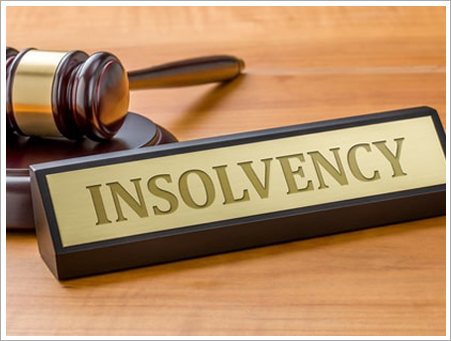Steps to Take When Facing Insolvency
Facing financial difficulties and considering insolvency can be an overwhelming experience. It is important to understand your situation and options so you can take the right steps to protect yourself legally. Financial troubles can sometimes lead to legal issues, so being proactive and informed is important. An Illinois lawyer can help you approach this situation wisely.
First, Understand Your Your Financial Situation
The first step is to get a clear picture of your finances. Gather all relevant financial documents, including bank statements, credit card bills, tax returns, and loan agreements. Make a list of your assets, debts, income, and expenses. This will help you determine the severity of your financial situation and explore potential solutions.

Insolvency means that you are unable to pay your debts as they come due. If you have more liabilities than assets or not enough cash flow to cover living expenses and debt payments, you may be insolvent. Common causes include job loss, medical bills, business failure, or overwhelming debt.
Consider Debt Relief Options
Depending on your circumstances, there may be ways to get relief from your debts without filing for bankruptcy:
Negotiate with creditors: Reach out to your creditors to see if they are willing to work out a payment plan, reduce interest rates, or settle the debt for less than the full amount owed. They may be open to finding a mutually agreeable solution if you can demonstrate financial hardship.
- Credit counseling: A certified credit counselor can review your finances, help you create a budget, and enroll you in a debt management plan (DMP). In a DMP, you make one monthly payment to the credit counseling agency, which then distributes the funds to your creditors. This can help you pay off unsecured debts over time, often with reduced interest and fees.
- Debt consolidation: If you have multiple high-interest debts, consolidating them into a single lower-interest loan can make repayment more manageable. However, be cautious of predatory lenders and carefully review loan terms before signing anything.
Find Out Which Type of Bankruptcy is Ideal
If your debts are too much to handle, bankruptcy may be the best path to a financial fresh start. In Illinois, the two main types of consumer bankruptcy are Chapter 7 and Chapter 13.
Chapter 7 bankruptcy allows you to discharge several types of unsecured debt, such as credit card balances, medical bills, and personal loans. To qualify, you must pass a means test based on your income and expenses. If approved, a trustee will liquidate any non-exempt assets to pay creditors, and the remaining eligible debts will be wiped out.
Chapter 13 bankruptcy involves reorganizing your debts into an affordable 3-5-year repayment plan. You can keep your property but must have sufficient income to make plan payments. Upon completion of the plan, certain remaining debts may be discharged.
Rebuild Your Credit
Insolvency and bankruptcy can have a significant negative impact on your credit. However, it is possible to rebuild your credit over time with discipline and smart financial habits:
- Pay bills on time
- Use credit sparingly
- Consider a secured credit card
- Monitor your credit reports regularly
- Be patient, as negative marks will eventually fall off your credit report
Insolvency is not a moral failing but a financial reality that many people face at some point in their lives. By being honest with yourself about your situation and exploring possible options, you can overcome this challenging situation and work towards a brighter financial future.
Contact a Cook County, IL Bankruptcy Lawyer
If you are facing debt that is far beyond what you can handle, you can seek help to weigh your options. Working with a Chicago, IL bankruptcy attorney is an ideal first step. Call Teller, Levit & Silvertrust at 312-922-3030 to begin with a private consultation.
Putting Your
Business First
Business First
To Learn more about our services or schedule an appointment please call 312-922-3030.
To Learn more about our services or schedule an appointment please call 312-922-3030.

